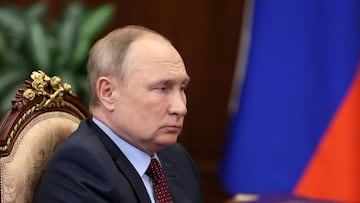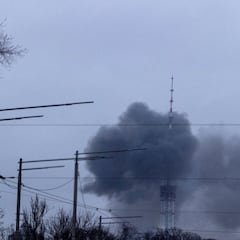What do Russians think of the invasion of Ukraine?
The attack on Ukraine has made headlines around the world and brought sanctions for Putin, but what do Russian citizens make of the invasion of a neighbour.


There has been a raft of sanctions imposed on Russia and on Russian citizens in the past week in response to President Putin’s invasion of Ukraine. Western powers are unwilling to send troops to fight in the conflict but have sought to make the Kremlin’s actions unsustainable with tough economic punishments.
In recent days the value of the Russian ruble has slumped against the dollar, the cost of living for Russians has soared and numerous companies, such as Apple, Disney and Nike, have withdrawn their products from Russia.
Speaking to CNBC Timothy Ash, an emerging markets strategist, said that Putin had “spectacularly miscalculated” the response in Russia to war with Ukraine.
“He has been spectacularly wrong on all counts,” Ash added. “Thousands of Russian mothers will be grieving the loss of their sons. Russians will see their living standards drop and their savings melt.”
See also:
- What is Ukraine's biggest export?
- Why is Belarus helping Russia? Where is Belarus on a map?
- How much damage does a nuclear weapon do?
- What is the vacuum bomb that Russia used against Ukraine?
- Putin shows no sign of relinquishing power of his own accord
Russians gather to protest in huge numbers
An authoritarian streak runs through Putin’s two decades in control of Russia and his government takes any opportunity it has to crush opposition and gag dissenters. It is this that makes the anti-war protests against the invasion of Ukraine so telling.
More than 6,400 Russian have been arrested in anti-war protest in the past week, offering a considerable an overt opposition to Putin’s rule. By Tuesday morning a Russian-language Change.org petition calling for an end of war in Ukraine had surpassed one million signatures.
Laws on protests are incredibly strict in Russia and a protest-related arrest, according to the Russian government, "leaves a mark on the person's future." Alexei Navalny, a well-known critic of the Kremlin who is currently imprisoned, called on Russian to continue their protests against an “obviously insane tsar.”
anti-war protest in moscow
— ian bremmer (@ianbremmer) February 27, 2022
surely getting bigger when the russian economy implodes tomorrow pic.twitter.com/ZIOtOzJVhd
However in Russian media there has been no mention of the thousands of arrested protesters, or of the many more who took to the streets in support of Ukraine. Last week the Kremlin sent out letters to ten publications, warning them not to use the words "invasion," "attack" or "declaration of war" in their coverage.
Public figures in Russia voice their opposition
There are some prominent Russians who are willing to speak out against the invasion of Ukraine. Elena Kovalskaya, formerly the artistic director of the state-owned Meyerhold Theatre and Cultural Center, resigned from her role last week in protest.
In a Facebook post she wrote: "It is impossible to work for a murderer and get a salary from him.”
On Wednesday, one week after the invasion began, the first Russian official resigned from his position at a global organisation in protest. Boris Lvin was a senior advisor to Russia’s representative at the World Bank and had worked at the institution for 24 years.
NEW from the @FT: Boris Lvin, an aide to the Russian board member at the WB, has resigned, told the FT the decision involved “rather little sacrifice on my side, especially compared to what currently endure people in Ukraine and brave protesters in Russia" https://t.co/6ElKeydAtq
— James Politi (@JamesPoliti) March 2, 2022
However he wrote in an email that he had “officially relinquished” his duties, citing solidarity with “people in Ukraine and brave protesters in Russia.”
Related stories
“In view of the ongoing events I can no longer associate myself with my government, and will have to resign my position,” he continued.
While dissenting voices to Putin’s invasion are minimised in Russia, the scale and the intensity of the feeling of support for Ukraine means that the opposition cannot be entirely silenced by the Kremlin.

